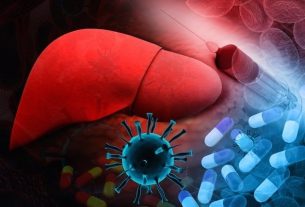Treatment for irritable bowel syndrome is a combination of medications, changes in diet and reducing stress levels, which are advised by the gastroenterologist to alleviate the affected person’s symptoms.
Irritable bowel syndrome is characterized by a change in the functioning of the intestine, which causes symptoms such as abdominal pain or bloating, diarrhea, constipation and the presence of mucus in the stool. Find out what it is and how to know if you have this syndrome.
There is no single formula to treat this syndrome, therefore, the best form of treatment is advised by the doctor depending on the types and intensity of symptoms present in each person.

1. Diet changes
Normally, treatment for irritable bowel syndrome is started naturally, that is, by making changes to your diet such as:
- Eat regular meals at certain times, such as every 3 hours, for example;
- Avoid alcoholic drinks or stimulating drinks, such as coffee and energy drinks;
- Avoid foods with a lot of fat or sugar, such as butter, cheese, sausages, cakes or cookies;
- Drink at least 2 liters of water per day;
- Prefer to eat white meat and vegetables;
- Give preference to cooked, grilled or sautéed foods;
- Adopt a FODMAP diet, which consists of removing foods that are poorly absorbed and undergo fermentation by the intestinal flora, causing worsening of irritable bowel symptoms, such as carrots, beets, apples, mangos, pasta and honey. Find out how to follow the FODMAP diet.
Furthermore, some patients may also have to exclude other foods such as milk and dairy products from their diet, if there is some type of intolerance and the symptoms worsen or appear after ingestion.
See nutritionist Tatiana Zanin for some diet tips for irritable bowel syndrome:
2. Medicines
Medications to treat irritable bowel syndrome are recommended mainly during periods when symptoms worsen, as a way to alleviate them. Therefore, depending on the symptoms presented, the doctor may prescribe:
- Antispasmodic medicinessuch as Hyoscine or Scopolamine, to reduce abdominal pain and discomfort, especially after eating;
- Antidiarrheal medicinessuch as Loperamide, to prevent or alleviate the onset of diarrhea;
- Laxativessuch as Lactulose or Magnesium Sulfate, in cases of constipation to stimulate bowel function;
- Antidepressants or anxiolyticssuch as Duloxetine or Amitriptyline, may be indicated if the symptoms of the syndrome are associated with depression or anxiety
Some patients may also present symptoms due to the excessive development of bacteria in the intestine and, therefore, the doctor may try using antibiotics, such as Rifaximin, for example, for a short time to try to reduce the amount of bacteria inside the intestine, relieving the symptoms.
Probiotics can also help regulate intestinal flora, and, in addition, several other medications have also been tested and developed to relieve symptoms and combat this disorder.
3. Psychotherapy
Psychological symptoms are present in most patients with irritable bowel syndrome, so psychological therapy is an important form of treatment.
It can be done in the form of traditional psychotherapy or cognitive behavioral therapy, in which the psychologist helps to identify the psychological issues that influence the emergence of symptoms, and encourages the patient to adapt the body’s response.
4. Alternative Treatment Options
In addition to the medications recommended by the doctor and changes in diet, some alternative therapies can help complete the treatment, mainly as a way to reduce stress, which is a major trigger of the disease’s symptoms.
These include meditation, relaxation, reflexology and acupuncture therapies. Furthermore, the use of some medicinal herbs, such as peppermint, helps reduce abdominal cramps due to their natural antispasmodic power. However, the use of these therapies should not replace doctor’s advice.
See also some suggestions for home remedies to alleviate symptoms.
Signs of improvement
Signs of improvement in irritable bowel syndrome are the reestablishment of intestinal transit and the reduction of discomfort and abdominal pain after eating, for example.
Signs of worsening
Signs of worsening irritable bowel syndrome are more frequent when treatment is not carried out properly, when periods of stress worsen or foods that aggravate symptoms are not avoided, producing diarrhea, constipation, excessive tiredness or dehydration, for example.
Bibliography
- GOLDMAN, Lee; SCHAFER, Andrew I.. Goldman-Cecil Medicina. 25.ed. Rio de Janeiro: Elsevier, 2018. p. 904-908.

Sign up for our newsletter and stay up to date with exclusive news
that can transform your routine!
Warning: Undefined array key "title" in /home/storelat/public_html/wp-content/plugins/link-whisper-premium/templates/frontend/related-posts.php on line 12
Warning: Undefined array key "title_tag" in /home/storelat/public_html/wp-content/plugins/link-whisper-premium/templates/frontend/related-posts.php on line 13




